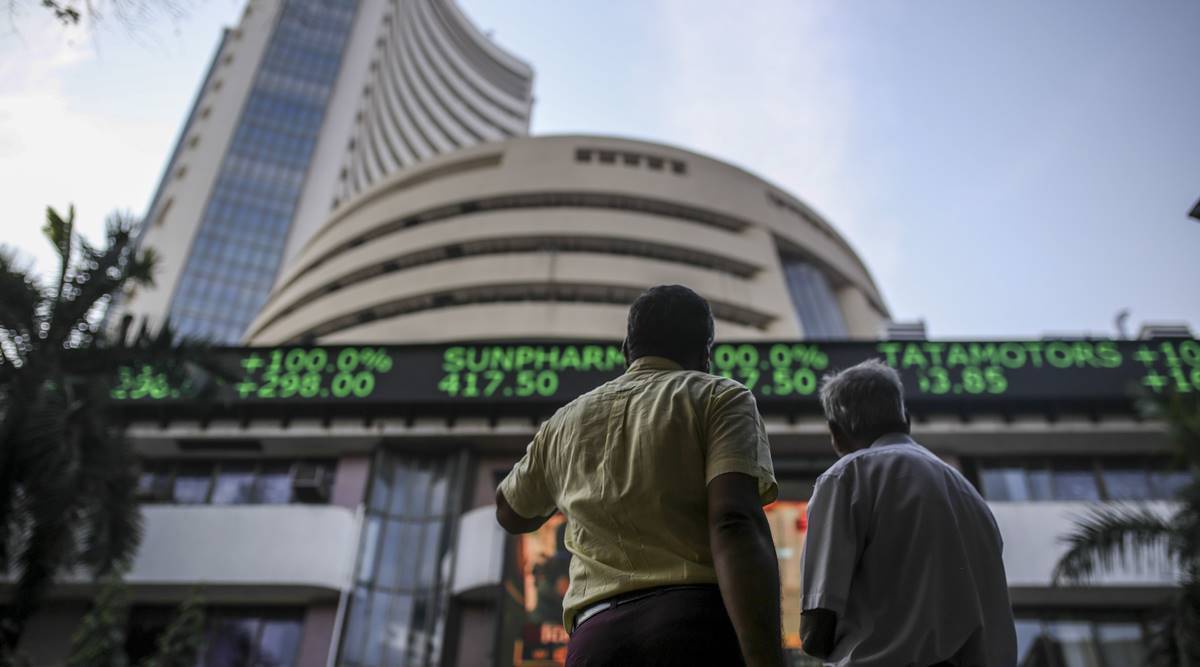Why is the US stock market better than the Indian stock market?

Why is the US stock market better than the Indian stock market?
The US market draws a lot of investors, but unprepared overseas investments could be risky. You must be aware of the benefits and disadvantages before beginning your US investment journey. Many people find it intimidating to put money in US marketplaces from India. However, you can diversify your portfolio using the global stock market. In this essay, we’ll discuss a few elements that help you compare the Indian and US stock markets.

Diversification is important to a wise investment. If you are an investor or aspire to be one, you may already be familiar with this advice. The economy that exists now is digital and, by its very nature, incredibly global. Wealth should be diversified into different asset classes. When India reopened its markets and economy to the rest of the world, it had long before come to believe this.
Foreign investors perceived (and still see) India because of the developing market, teeming with a universe of growth opportunities because the Indians gained access to products and services from overseas. You may diversify your portfolio by making investments in other marketplaces, which will help you preserve your resources while assuming little risk.
Main variations
The first step for any investor, domestic or international, is to open a Demat online account. When you do this, investing benefits are at your fingertips. It would be wise for you to be aware of the variations between the US and Indian stock markets. This will assist you in making better investment decisions. The following investment-related features are those that stand in contrast:

- Diversity of Funds – The US stock market differs majorly from the Indian stock market in that it lists companies from over the world, not just those based in the US. Companies from many different countries across the world are listed on indices that track the US stock market.
- As a result, even though it wouldn’t be by much, US markets could experience a national emergency. In change, when India is concerned, Indian companies predominate over the benchmarks in the Indian stock market. As a result, major negative occurrences rarely have an impact on Indian markets.
- Exchange Rate Variances – All investments and transactions on the Indian stock market and stock and market interchanges are made in Indian Rupees (INR). Naturally, this is done in USD, given the US stock market. The USD, which is more potent than the INR, is the default world currency. Investments undertaken with the USD in movement will therefore yield is better profits. For investors who put money into US markets, this means more profit.
- Volatility and Dynamism – US marketplaces are less volatile than Indian markets are. Simply put, in long-term market setups, the Indian front experiences more market volatility than the US share market. As a result, investing in US stocks would be safer than doing so in Indian markets.

Diversification of holdings
As many US-listed companies have operations around the world, what makes US market intriguing is that you gain exposure to both the US and the rest of the world. The many benefits provided by investment prospects in the US market are highlighted by Viram Shah, founder, and CEO of Vested Finance, in this statement.
Equities plummeted globally due to the current coronavirus pandemic, with declines of between 20 and 30 percent. Investment diversification would have been very beneficial and effective at this time. The S&P 500 had already made up all of its losses brought on by the coronavirus by June 8th, 2020. Meanwhile, Sensex was still down 17%.

The US Stock Market features big businesses from across the world in addition to US-based ones. Companies listed on the key US Stock Market index come from all over the world. A national emergency could lower the ranking. The effect would be minimal, though.
The Indian stock market is dominated by Indian enterprises. A dramatic decline in the indexes can result from even minor turmoil in the country. The US Share Market is different and resilient to unsuited cases. In the situation of India, one cannot make the same statement.
Currency
The currency you use for trading and investing can majorly impact your portfolio, both positively and negatively. When it comes to finances in US markets, they are crucial. Consider the Indian Rupee, which has continuously lost value in comparison to the US Dollar. This is a major disadvantage because all financial investments in Indian markets are made in INR, which causes their weight to decrease over time. The Dollar has gained 6 percent against the rupee only this year.

The American Dollar is one of the main benefits of making investments in US markets. Your resources grow in value along with it, even if your investment to be a whole does not.
All investments in India are made in INR. Investments are made in USD while in the US. The most widely used and de facto accepted currency global is the US Dollar, even though it lacks an official name.
Given that the rupee has been steadily losing value vs the Dollar over time, investments done in US dollars will result in better returns. Despite the portfolio being unchanged, the investments increase due to the strengthening of the Dollar. As a result, investing in dollars will result in a better return than investment in rupees.
Global variables

The US markets continue to be home to all major companies that are leading their sectors with new solutions, while the Indian start-up environment has been thriving. Since Indian law requires three years of continuous profits before a firm can go public, investors in India are unable to participate in reaching a higher level at home.
Most Indian investors are majorly barred from taking advantage of the moment to present their belief in novel business models because the story of many start-ups is one of postponed earnings for expansion and market share. The US has relatively flexible restrictions, making it possible for investors from across the world to follow the development of big creative models.
Uber, Amazon, Tesla, and Facebook are just a few examples of the companies that the US economy and its model have produced. It can be necessary for many people for their portfolios to change in order to take advantage of these changes.

Therefore, the US market provides a more hopeful future because it allows global exposure and investors to create the top global corporations, like Google, Amazon, Facebook, etc.
Compared to Indian markets, several international markets have lower relative market volatility. In other words, over the long run, the US stock market is less volatile than the Indian stock market. Major swings have been seen in Indian markets. Therefore, investing internationally is a fantastic way to diversify your portfolio. Additionally, investors with a global portfolio can expect that it would move differently from the Indian markets.
Global elements
Comparatively speaking, Indian market regulations are stricter than several other international markets. While the US economy continues to house a maximum of the major companies across industries, start-ups are growing in India. According to Indian law, a business must turn a profit for three straight years before going public.

Due to these factors, a maximum of investors pass up the opportunity to participate in these early-stage businesses. In contrast, laws and regulations in the US are a little bit laxer. This suggests that investors can make global investments and take part in the development of big cutting-edge models. Businesses like Facebook, Amazon, Tesla, and others have presented the power of the US markets.
An investor’s choice to purchase such stocks is important because they could turn out to be amazing prospects. As a result, the US marketplaces are more hopeful since they give investors access to a broader global market and allow them to participate in some of the top corporations on the world.
Efforts & Research
Participating in two markets would necessitate a thinking process and research into two economies in addition to several other external factors that affect these markets. This work may seem overwhelming and time-consuming to the common investor. Some people could get the rejecting returns in this and be willing to forsake the chance of all the rich people in favor of putting forth less effort.

By using ETFs to put money into US markets, which reduce risk through diversification, this situation may be alleviated. However, for the typical investor, Indian markets still hold a slight advantage in this region.
While investing across multiple geographies necessitates research-related skills. Each country has a unique economy, and extra factors can have an impact on the markets. As a result, keeping track of several markets may be a thing and intimidating for investors. Additionally, one needs to stay updated about all the variables that could affect the stock market. The Indian stock market is considered better than the US stock market in terms of knowledge and effort.
Some investors may decide to pass up the higher revenue potential of trading in US shares from India due to the proper kind of research required for the US markets.
Volatility

The US market has historically been less volatile than Indian markets over the long term. Indian stocks have presented high volatility over the years, with major swings in returns. Another justification given by experts for diversification in investing is the dispersed and reduced risks. Additionally, investors should expect that their portfolios would move differently from Indian indexes if they opt to diversify by participating in US markets.
Compared to Indian markets, several international markets have lower relative market volatility. In other words, over the long run, the US stock market is less volatile than the Indian stock market. Swings have been seen in Indian markets. Therefore, investing internationally is a fantastic way to diversify your portfolio. Additionally, investors with a global portfolio can expect that it would move differently from the Indian markets.
Trading indicators
One of the most acceptable ways to diversify an investor’s portfolio of investments is through location diversification. And the preferable choice is to put money into the United States. Compared to the Indian stock market, the distribution of the US indices across different industries is equal.

Over the past five and ten years, the Dow index has outperformed the Sensex. In addition, compared to US markets, Indian marketplaces trade at great multiples and have lower dividend yields. However, both industries have historically provided respectable giveaways and appear profitable going forward.
Prospects unique to the US stock market
Some of the largest companies in the world thrive on the US stock market. The US stock market is centered on the businesses that are pioneering technical improvements and continuously introducing new concepts and methods.
History presents that investment in some of these global giants has yielded favorable long-term returns for shareholders globally. Many of these businesses are technologically cutting-edge, and some work in new sectors like artificial intelligence, genomics, materials research, environmental science, and pharmaceuticals, according to Ranawade.

The US continues to have the amazing economy in the world, with a 20 trillion dollar GDP, and some of the major global companies from China, Japan, and other developed countries are registered on their stock markets thanks to the NYSE, Dow Jones, Nasdaq, and Russell indices.
Markets for Debt
Trade in treasury bonds and deposit certificates takes place on the debt market. As against to India, when it is still in its infancy, this market is far more developed than the US. Bond yields provide insight into the market’s impact on the Indian stock market. Many stock markets, including those in the US, Europe, and Asia, are impacted by rising or declining yields on US Treasury bonds.

A rise in yield translates into higher borrowing costs for companies with operations in the US. It will interfere with their future expenditure (Capex) plans, which many value investors view to be a warning sign. This will have an effect on these companies profits, which will have an adverse impact on the Indian markets due to a decline in share price.
One of the major components of financial ratios in stock investing and trading is news flow. Inflation, GDP expansion, election results, a COVID-19 relief package, a budget deficit, etc., might all be included in this report. These situations determine how much money flows abroad from foreign institutional investors, foreign portfolio investors, and other foreign investors.
As these FPI and FII funds affect the Indian stock markets, this is one of the crucial aspects of comprehending the impact of the US market on the Indian market.

This was all about how Nasdaq, the Dow Jones Islamic Market Average (DJIA), and the S&P 500 affected Nifty and Sensex, two US market indices. We will now focus on how Chinese stock markets affect the Indian market. This is it:
When it came to pharmaceuticals, automotive equipment, and electrical goods, to name a few, the Chinese market is a major exporter to India. In a similar vein, China imports chemicals, steel, aluminum, iron ore, and so forth.
China’s internal policies would harm their publicly traded companies and consequently their stock markets, much as how the US market affected the Indian market. Those recognized Indian companies that arrange business with Chinese companies would feel the effects of this.
Exchange Rates

These are the currency risk used in market transactions for currencies. The Indian Rupee is comparatively weaker than the USDollar, which is the major currency in the world. Look at the trade (exports and imports) between the two countries if we need to understand the impact of the US market on the Indian market.
Since India imports many services and goods from the US, importing companies will incur higher costs if the US dollar value rises relative to the Indian Rupee. To put it simply, with the rising of the exchange percentage will cause these businesses to become less profitable, affecting their share price.
Economic Strategies
The central bank’s monetary policy and the central government‘s fiscal policy are the two main choices that would affect the country’s policies. We should check the interest percentage decisions or trade restrictions that result in the US and India’s trade imbalance to understand the impact of the US market on the Indian market.

For a moment: Steel producers in India and the value of their stock will be impacted if the US increases tariffs or imposes extra fee charges on steel imports. So, even a seemingly unimportant action by a developed country could cause instability in a developing country.
Considerations when making international investments
After the US Fed injected further global liquidity after March 2020, the share price indexes as of right now have risen to new levels and are trading close to all-time high levels. The US economy is strong, and it is expected that it will soon return to its pre-Covid levels, albeit several critical economic indices will be closely watched in the near future.

When making an international investment, one must take into account global events like hyperinflation, interest rates, Reserve bank policy, etc. It is necessary to track growth rates across diverse geographies. According to Ranawade, currency fluctuations impact both these businesses and the investor who owns stock in them.
The US is quickly taking the top spot in international investment destinations for an increasing number of Indian investors. The US stock market provides a variety of opportunities for all traders, from novices to long-term investors, including single stocks and ETFs.
Which one is superior?
Yes, the US and Indian markets each have advantages. But it’s simple to understand how US sectors show more potential in a contemporary investing environment with access to the global market. This is partly a result of their personality and love for other countries and the reason that some of the most exciting businesses in the world are based there.

Undoubtedly, the Indian market should continue to make up a sizeable part of an investor’s portfolio. Still, the US makes a compelling situation for inclusion in the portfolio of Indian investors.
In conclusion, the Indian and US stock markets have benefits and disadvantages. However, access to foreign markets will assist increase portfolio returns in the current investing environment.
Compared to the Indian Stock Market, the US Stock Market is more diverse and less volatile. Investors can participate in the success of start-up businesses and the world’s top corporations. While Indian resources should still make up the maximum of an Indian investor’s portfolio, it will be beneficial to diversify a little and add US investments.
edited and proofread by nikita sharma




